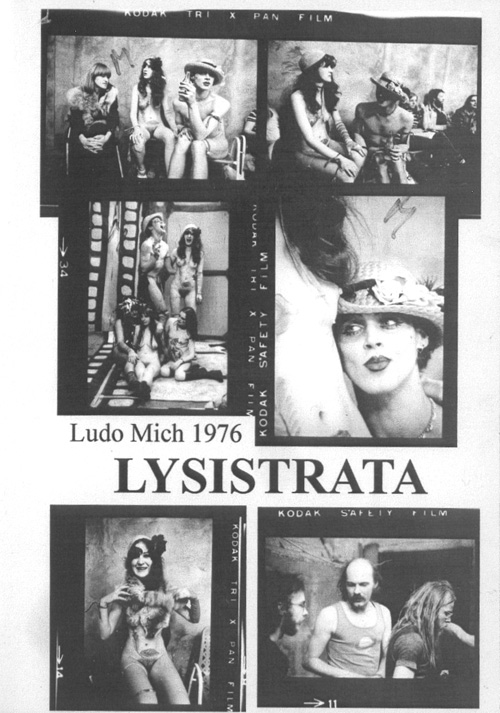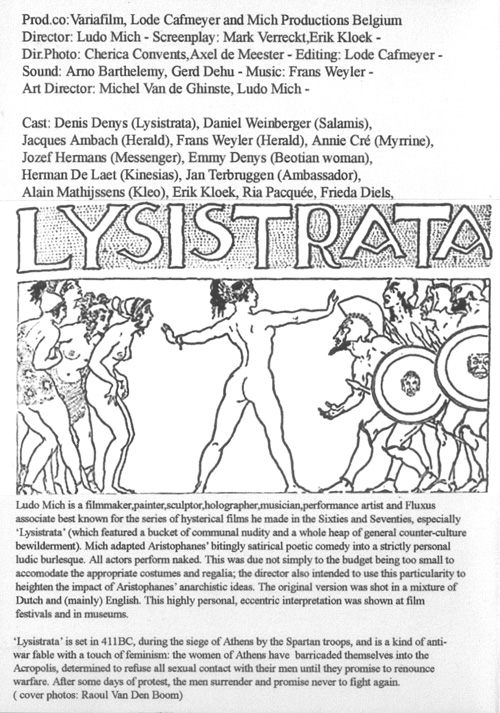Lysistrata is a comedy by Aristophanes that was staged for the first time in Athens in 411 BC. The main character, Lysistrata, is a strong-headed woman who persuades women from various warring states in ancient Greece to deny their men all sexual pleasures in an effort to force them to end the interminable Peloponnesian War (431-404 BC). After a period of heated and comical battles of the sexes, the men succumb to the women’s demands. The warring parties finally agree on a peace treaty when Lysistrata cunningly introduces the sexually deprived men to a seductive young woman, tellingly called Reconciliation. For those reasons the comedy can be seen as an early anti-war and feminist play. Ludo Mich staged and filmed the comedy in 1976, at a time when the themes of Lysistrata dovetailed with various social and political movements of the period. Because of this choice Ludo Mich’s Lysistrata is a countercultural film, but much more than that, it is an original and personal interpretation, almost a perversion, of a classical play that rank the film among the most radiantly strange pieces in Ludo’s controversial body of work.
Director: Ludo Mich
Screenplay: Mark Verreckt, Erik Kloek
Photography: Erik Convents, Alex De Meester
Sound: Gerd Dehu, Arnout Barthelemy
Editing: Lode Cafmeyer
Production: Variafilm, Lode Cafmeyer and Mich Productions Belgium


